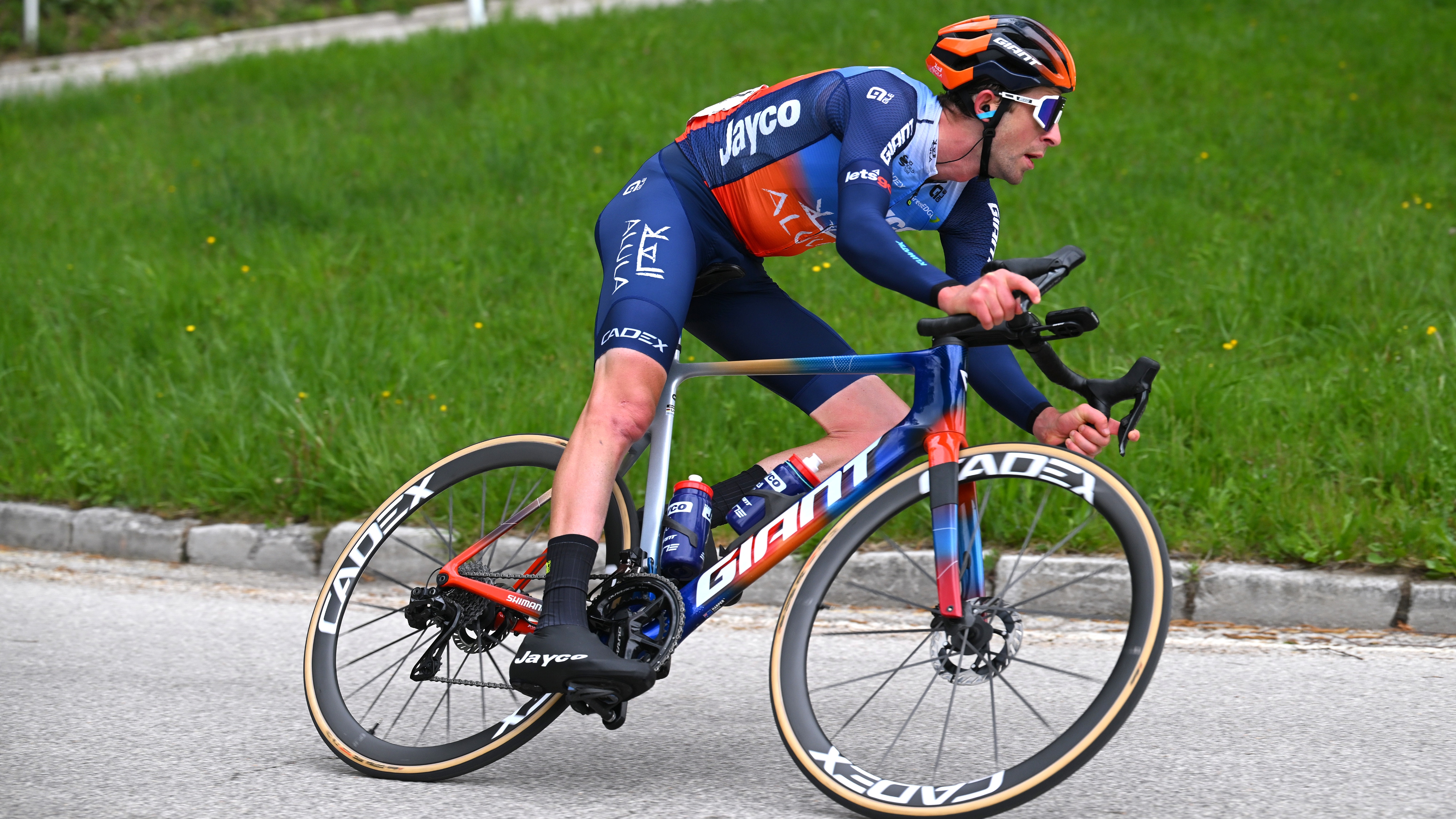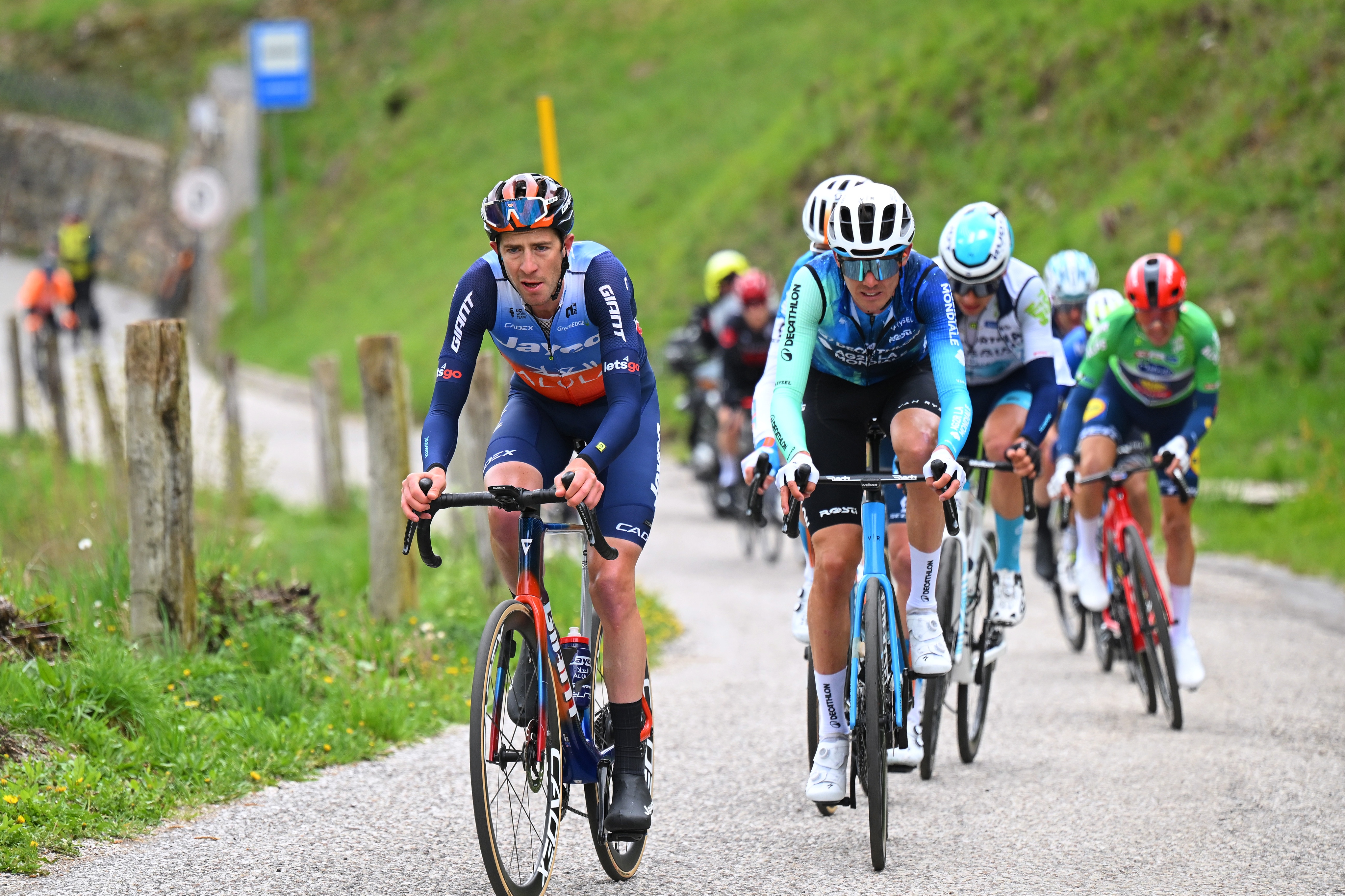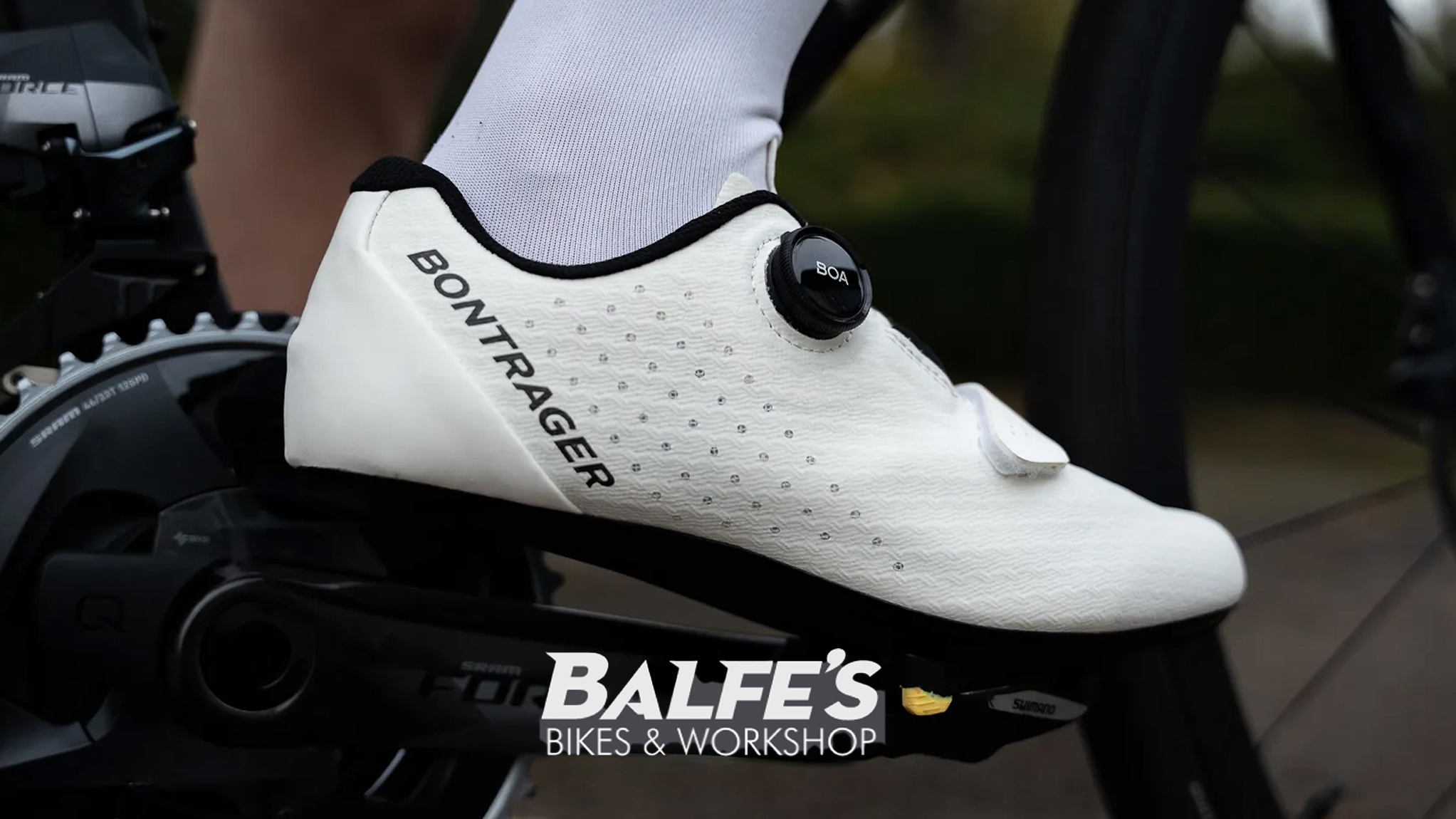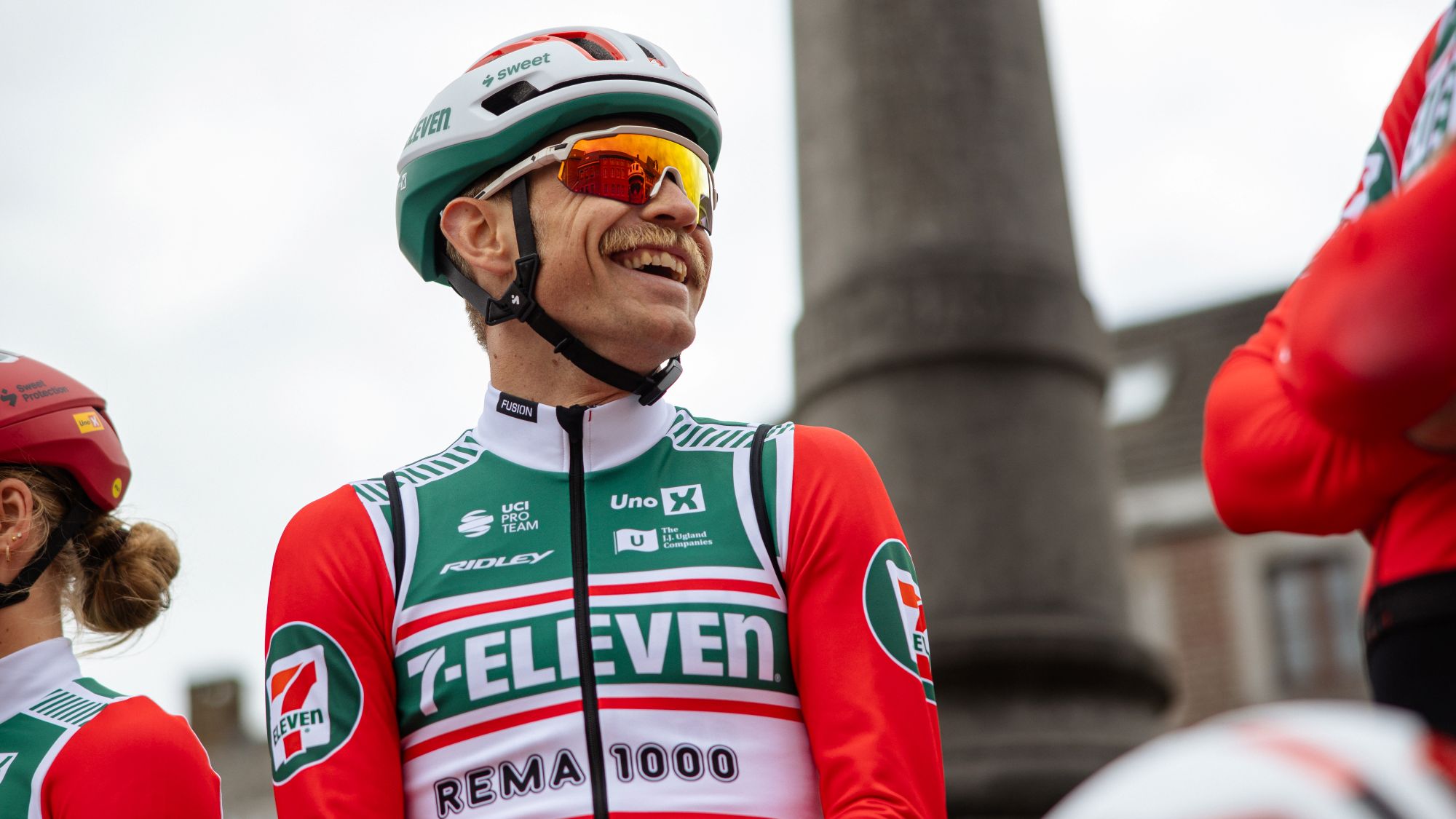'In the summer I’ll also jump into a hot bath for 20 minutes after a ride': A week in training with a WorldTour rider
We caught up with Australian Chris Harper as he prepared for this summer's Vuelta a España


Australian Chris Harper didn’t reach the WorldTour until he was 25, but since then he has developed into a reliable mountain domestique who can stick with the best climbers in smaller stage races. His second season with Jayco-Alula, after three years with Jumbo-Visma, was an unlucky one. The 29-year-old abandoned the Tour de France in the second week with Covid, and then withdrew from the Vuelta a España on stage 11 after featuring in several breaks
Vital statistics
Age: 29
Raised: Melbourne, Australia
Lives: Andorra
Height: 6ft 1in
Rides for: Team Jayco-Alula
Best results: 1st, GC – Tour of Japan (2019); 4th, GC – UAE Tour (2021); 6th, GC – Volta a Catalunya (2024)
Is Covid still a problem in the WorldTour?
For sure. It affected me quite badly this time around. It was the normal flu-like symptoms with a fever one day, but the aches lingered for several weeks. I felt like I lost a lot of my conditioning and when I returned to training I was super fatigued from just a simple ride.
What’s your approach to heat training?
If you can ride in the heat, you’re naturally training for it, but in the summer I’ll also jump into a hot bath for 20 minutes after a ride. The aim is not to drink or eat anything, and then replenish all the liquids lost after a shower and recovery shake. It’s brutal!
How do you optimise carb intake?
Even in training while simulating race days, when we consume 100 grams of carbs per hour, it makes such a big difference to how I perform at the end of the session. I can still bang out super-hard, high-intensity efforts, whereas in the past I’d be more depleted and just hanging on.
Get The Leadout Newsletter
The latest race content, interviews, features, reviews and expert buying guides, direct to your inbox!
How has the growth of nutritional apps helped you?
By enabling me to monitor exactly what I’m putting into my body and identify which nutrients I’m missing. At the same time, though, you need a healthy relationship with it; at certain times of the year, you have to just let yourself live without inputting data all the time.
A week in training

Harper’s pre-Vuelta regimen included high/low cadence work and intervals
Here's a look at the training Harper completed between 29th July and 4th August, as he prepared for the 2024 Vuelta a España.
Monday: Endurance ride
A basic endurance ride aiming for a heart rate between 125 and 145bpm, and power under 300 watts. For these days, I always bring two one-litre bottles of liquid with me, and stop after 2.5 hours for a Powerade, a sugary drink and a Calippo – always a Calippo in summer. Total riding: 5hr
Tuesday: Rest day
Today was a day of life admin, but also on days like this it’s good to refuel going into the next block of training. You can’t be crazily restrictive in your eating just because you’re not exercising, as if you underfuel for the next day, you won’t get the most out of training. Total riding: 0hr
Wednesday: High/low cadence intervals
A super-hot day on the TT bike with a number of intervals. I started off with 10 sets of four minutes in a big gear and low rpm, and in between a minute riding a high cadence of over 100rpm. Towards the end of the ride, I had two seven-minute intervals which consisted of alternating 40 seconds above TT pace and 80 seconds recovery. It’s so important to ride the TT bike to get comfortable in the positioning. Total riding: 4hr
Thursday: Long, hard ride
My coach calls these type of long sessions ‘keeping the chain tight days’, i.e. pushing on the pedals the whole time, testing the lactate, and riding for three hours at 280-320 watts. The last hour included two 15-minute climb intervals, pushing the last three minutes over threshold. Total riding: 6hr
Friday: Endurance ride
Today was the same idea as Monday: a day of riding without intervals, but this time going up loads of different climbs. In this block of training, I was doing two days hard, one day steady, followed by a day off. Total riding: 5hr
Saturday: Rest day
One thing I do on rest days is use recovery boots for an hour, and also massage guns. Especially after TT training where I tend to get tight in the glutes and hamstrings, the gun helps to release that tightness so I feel ready to train again the next day. Total riding: 0hr
Sunday: Long, hard ride
Another ‘keeping the chain tight’ day. I started with 300 watts for one hour, and then short but intense intervals of one minute on, one minute off with high torque and low rpm for the next three hours. I like these days of being on the pedals, making good progress, without going full-gas. Total riding: 5hr
Total volume: 25 hours
CW says...
This high-volume week hammers home just how hard pro riders have to train to be in the mix at the top level. There’s no heroic sprinting or brute force on display here, just the steady grind of long miles at a relatively high intensity. Take his Thursday ride, a six-hour outing, half of it above 280 watts. For most mere mortals, 30 minutes at that power is a stout effort – three hours is imaginable! But such work is bread-and-butter for a rider like Harper, who knows he may be called upon to sit at the head of a race churning out big numbers all day long.
This feature originally appeared in Cycling Weekly magazine. Subscribe now and never miss an issue.

Thank you for reading 20 articles this month* Join now for unlimited access
Enjoy your first month for just £1 / $1 / €1
*Read 5 free articles per month without a subscription

Join now for unlimited access
Try first month for just £1 / $1 / €1
A freelance sports journalist and podcaster, you'll mostly find Chris's byline attached to news scoops, profile interviews and long reads across a variety of different publications. He has been writing regularly for Cycling Weekly since 2013. In 2024 he released a seven-part podcast documentary, Ghost in the Machine, about motor doping in cycling.
Previously a ski, hiking and cycling guide in the Canadian Rockies and Spanish Pyrenees, he almost certainly holds the record for the most number of interviews conducted from snowy mountains. He lives in Valencia, Spain.
-
 Gear up for your best summer of riding – Balfe's Bikes has up to 54% off Bontrager shoes, helmets, lights and much more
Gear up for your best summer of riding – Balfe's Bikes has up to 54% off Bontrager shoes, helmets, lights and much moreSupported It's not just Bontrager, Balfe's has a huge selection of discounted kit from the best cycling brands including Trek, Specialized, Giant and Castelli all with big reductions
By Paul Brett
-
 7-Eleven returns to the peloton for one day only at Liège-Bastogne-Liège
7-Eleven returns to the peloton for one day only at Liège-Bastogne-LiègeUno-X Mobility to rebrand as 7-Eleven for Sunday's Monument to pay tribute to iconic American team from the 1980s
By Tom Thewlis